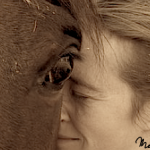ER What to Expect Part 3
| February 9, 2021 | Posted by Melinda under Uncategorized |
When I first started these posts I thought it would be a quick, light-hearted look at behind the curtain of veterinary emergency medicine. Something I’m new at but quickly starting to recognize some patterns in.
I’m realizing these posts aren’t going to be that simple. When I go to write about some of the items on my list they are triggering barely-related tangents that demand a thousand words to be typed and edited. Some items remind me of a situation with a particular patient that hits too close to home and I’m not ready to process what happened enough to be able to write something enlightening or entertaining about it. I also can’t write these posts right after an emergency shift. I need some time for the exhaustion to wear off and my mind be able to filter and sort what happened. I find myself wanting to write about other things, and I need to allow myself the space to do that between these posts.
I know this seems very melo-dramatic.
Trust me. I feel like a little fragile snowflake swooning on the couch even as I typed that paragraph.
Here’s the deal. I’m going to write these ER posts in between some of the other things in my brain that are demanding to be written. I won’t forget about the ER posts, I won’t leave you hanging…forever. But we ARE going to talk about other things before I get through this ginormous list (that really did seem more manageable in that first post when I blithely decided that 10 sounded like an excellent number.)
In case you are a new reader to this blog and happened to settle on this post as the first one you are reading. (why??????? It’s a part 3 of something where parts 1 and 2 are right there next to it) here’s the previous post.
Today we are continuing to talk about old things.
Why you are coming to see me: (b)geriatric dog has various well managed health issues that has one specific problem that needs to be checked out. (c) OR Geriatric patients that are crashing and burning before my eyes and Jesus ain’t letting go of that wheel this time. Sometimes they are coming in for euthanasia and sometimes they are coming in because the owner needs to hear there is nothing else they can do.
1b: The one problem old dog.
These are usually dogs that come in with a long list of diagnosed problems that are already being managed. Why are they here to see me in the middle of the night? Because there’s something new or something concerning and the owners want to make sure they catch something before it’s serious.
What to expect? It’s going to bloodwork, possibly xrays. Probably some SQ fluids. Some drugs to go home. These owners just needed to come see me when their regular vet wasn’t available, and I’m happy to oblige.
Honestly? It’s usually nothing. But some peace of mind, and some symptomatic treatment is worth the visit.
Don’t every feel guilty about coming in for some reassurance. That’s what I’m here for. It cost you some money and it cost me some time. It’s fine and I’m happy to be here for you.
1c: the crashing old dog.
Oh boy. You know all those images you have of emergency medicine with people running in and out of rooms, oxygen machines being fired up, various things beeping and blinking, and a patient rushed into the room in someone’s arms? That’s what this looks like. But unlike the tearful, happy ending – timed perfectly between commercial number 5 and 6 near the end of a 30 minute episode – these cases usually don’t end well.
It’s cancer.
It’s heart failure.
It’s some other badness that I probably won’t be able to fix but it doesn’t really matter because it’s the end. We are going to do our best. We are going to treat what we can and stabilize and try to figure out WTAF is going on since there’s always a chance that it’s actually a fixable zebra and the time has not come…..but chances are it’s not.
It doesn’t matter that money is not a problem, that you have insurance, or that he was fine an hour ago. I read the books, go to the CE conferences, and discuss cases with other vets. And yet, still I have not been granted the designation of deity and the powers thereof. I am not God, I am not a specialist, and I am not particularly optimistic.
Here’s where it gets really hard for me.
There are some other vets that are a lot more optimistic than me. They are of the “where there is life there is hope” and will recommend treatment. You have to try, they say.
My emphasis is different. We can try, but is that the right decision for this patient and this family?
Neither of us is wrong. Often the outcome is the same – dead dog. The difference is the money spent of course, but there’s one other thing…the amount of suffering and trauma that took place.
I care a lot about the latter.
It’s why if I give a patient a grim prognosis, I offer euthanasia. If in my best clinical judgement the patient is not likely to recover, is suffering, and the treatment is a hail mary that would extend that suffering with almost no hope of recovery….I cannot in good conscious as the animal’s advocate, give you treatment as the only option.
But, I do not believe in life at any cost.
And because I’m not a robot, this carries into my practice as a veterinarian.
This is really really really important to remember. Veterinarians are not rubber stamped copies of each other. There is a “standard of care” for diseases and things that we should be recommending that is similar across the profession – but depending on a lot of different factors, the veterinarian has a a lot of descretion in how they practice. There’s also heated arguments within the profession of what exactly meets standard of care in various situations, so really, it’s just us vets trying to do the best we can and what we feel is “right,” all while trying not to lose our license if we have to defend what we did in court.
The profession is uniquely both a professional one, and a service-oriented one. It makes things complicated. Is it more important that I please the client or advocate for the animal? Is my priority the human-animal bond, or the general public health? Is it better to do nothing if the client can’t pay for standard of care, or offer a level of medicine that many of my colleagues feel is outdated and inappropriate? How far do I pressure clients to spend money they don’t have – go into debt, borrow and beg from family members – in order to provide the “best medicine”? Is it ethical to offer relinquishment as an option if the owner can’t treat? How much suffering is okay before we call it quits for our best four-legged friend?
Maybe some day these questions will be easy. I do feel like I struggle more with these dilemmas than other people around me in this profession. I don’t know if it’s my food animal background, how I grew up, or my work with un-owned animals. I’m acutely empathetic with the suffering of animals. Most of the time I feel like a well made emotionless robot marching through life, but when I see an animal suffering, the blood rushes in my ears, the world narrows, and I get a surge of adrenaline that makes it feel like I’ve been punched in the gut. “Stop it stop it stop it stop it!” my brain screams over and over.
Sometimes I worry that I am not a good vet because I don’t push clients to try harder in hopeless cases.
Do I leave enough room for the magic of biology/the universe/God to take place within my medicine? Or am I so sure of my abilities – so overconfident – that I’m willing to offer the pink juice too early?
There’s a lot of chatter and indignation in the vet community of whether we have to euthanize a pet merely because a client requests it. (the answer is no, by the way). There has been a few cases that have made me wonder if I an obligation to treat if I feel that the animal should be euthanized? Because I tell you what, a owner demanding to have their animal euthanized when it’s bright and happy and bouncing around the exam room, feels exactly the same as the owner demanding continuing treatment when the animal is agonal and writhing, suffering underneath my tech’s fingers as he tries to place a catheter.
I don’t know. I’m haunted by these questions. It’s one reason I couldn’t do ER work (or GP work) all the time. A little bit is good for me. If it’s all I did, I’m not sure I would survive the experience.
So. That was quite the tangent.
What can you expect if you bring in an older dog that is in acute distress?
An oxygen cage.
Blood work if I can. I really want blood work because usually that’s going to give me a lot of information about how bad this is, or if there’s something potentially fixable.
A catheter with fluids.
Maybe xrays or other imaging if they hang on long enough.
A discussion of whether you want to transfer to a bigger facility with more diagnostic options (yes, it will probably be more expensive. No, it does not guarantee an answer, or an alive dog).
The goal is usually to find an answer, which is no small task sometimes. Sometimes we do imaging and the big, huge, ugly masses are staring us in the face, or the bloodwork comes back and it’s absolutely classic for a certain disease. That’s great – it guides prognosis and the conversation we need to have. But sometimes the body is dying and shutting down and there’s not a damn thing we can do and I can’t tell you exactly what the root cause was, I’m just treating the down stream effects and trying to buy us enough time to figure it out, while calculating the welfare and dollar expense of that purchase.










the simple (OK, not so simple) statement about being the animal advocate as opposed to treating -and maybe at any cost- definitely makes ME want you as my vet. Sometimes, yes, we are begging for just a little more time to mourn, to be sure of the decision, whatever, but what is truly important to me is my animal, that suffering is kept to a minimum. I very much admire a vet who will offer euthanasia as an option, too many will not offer (and I am sure that is their own issues in dealing with death, but I do not need to take their issues on my shoulders, got plenty of my own thank-you-very-much). My own equine vet here in PA is no stranger to the pink juice, I bless her for that, as she is realistic. Thorough, she would never do it on a whim but it is a kind service she will offer. But it IS hard on her, emotionally, at the end of the day. It is hard on all of us…..
Thank you so much for these words.